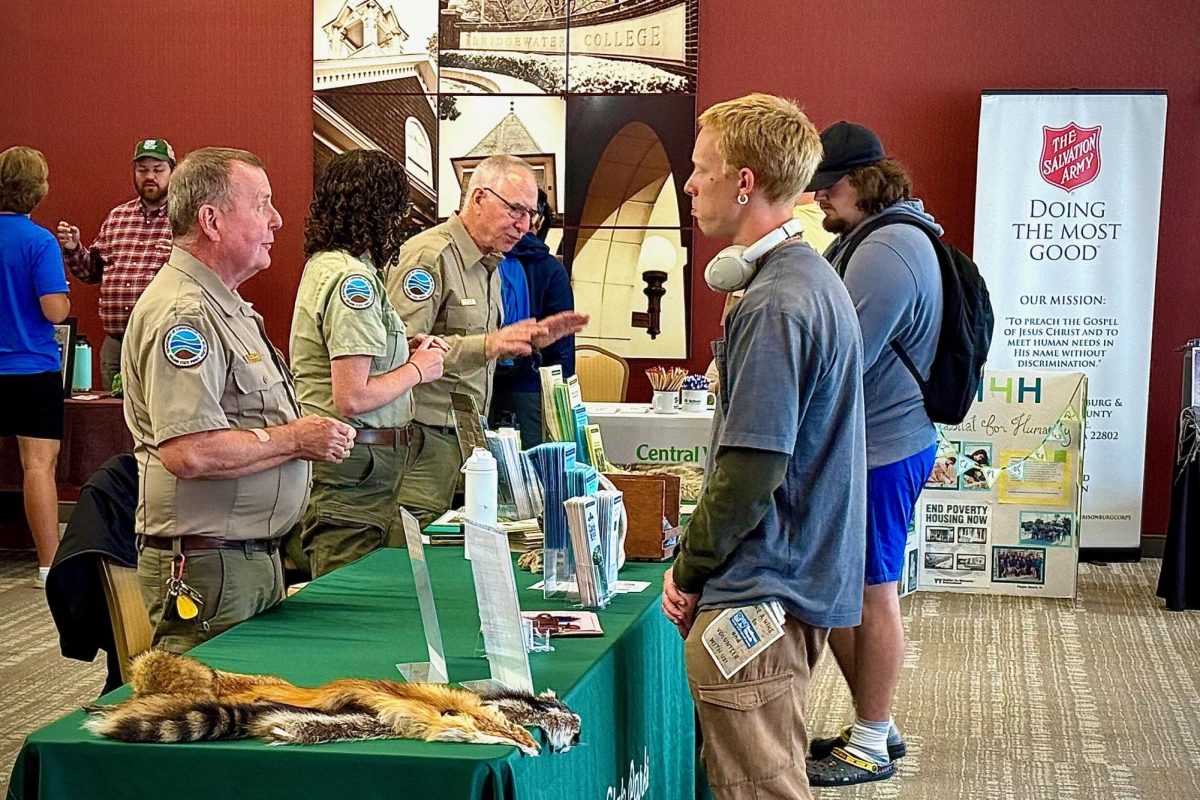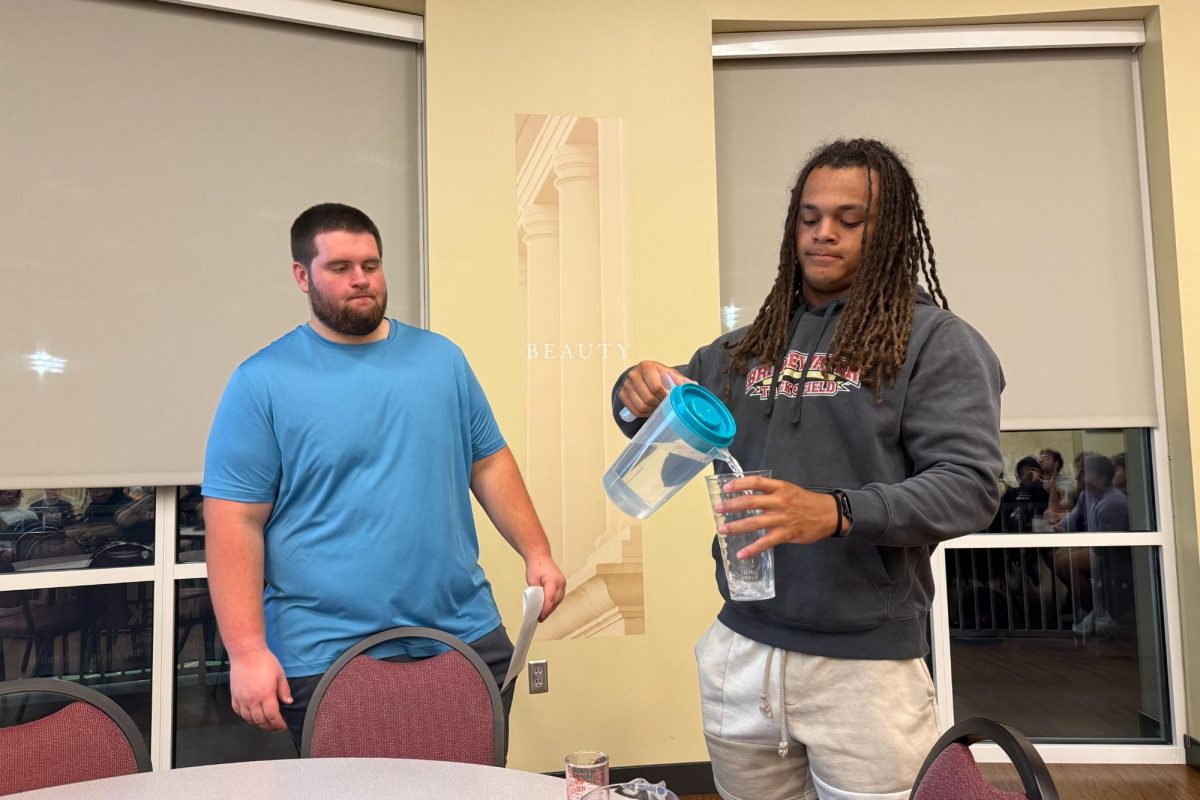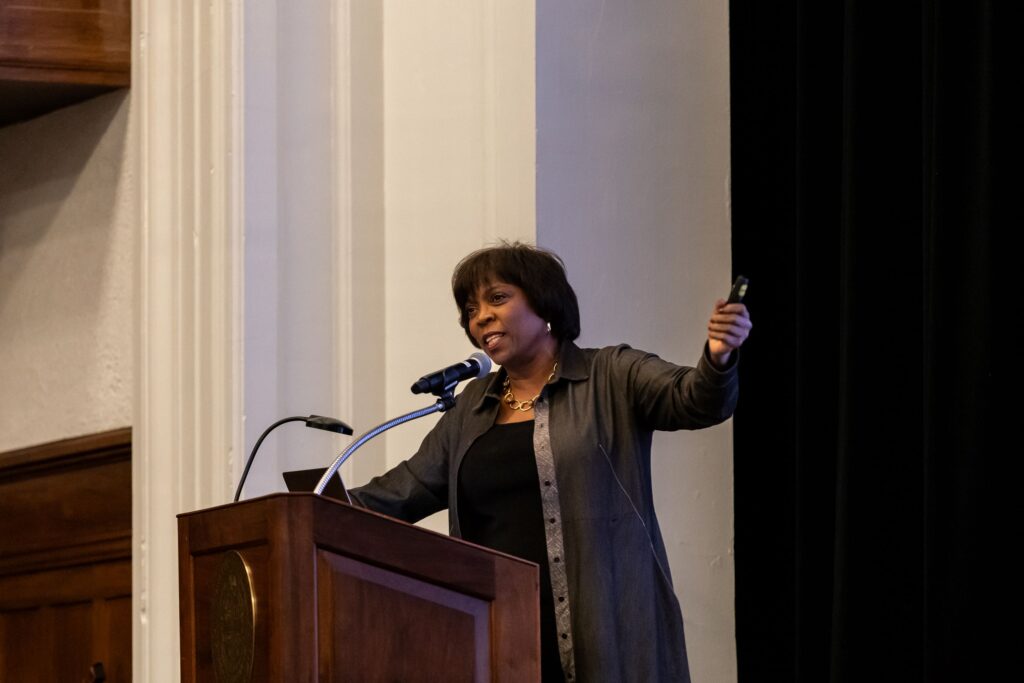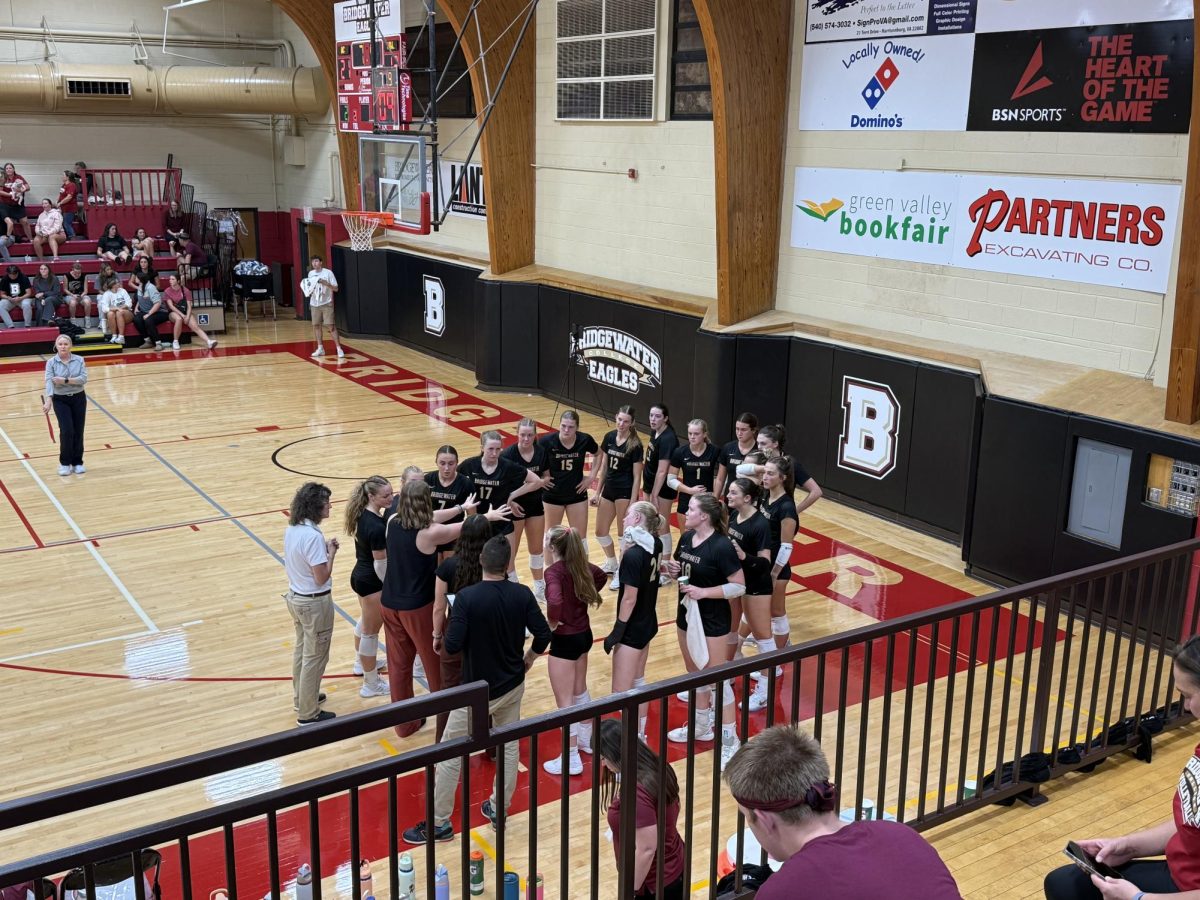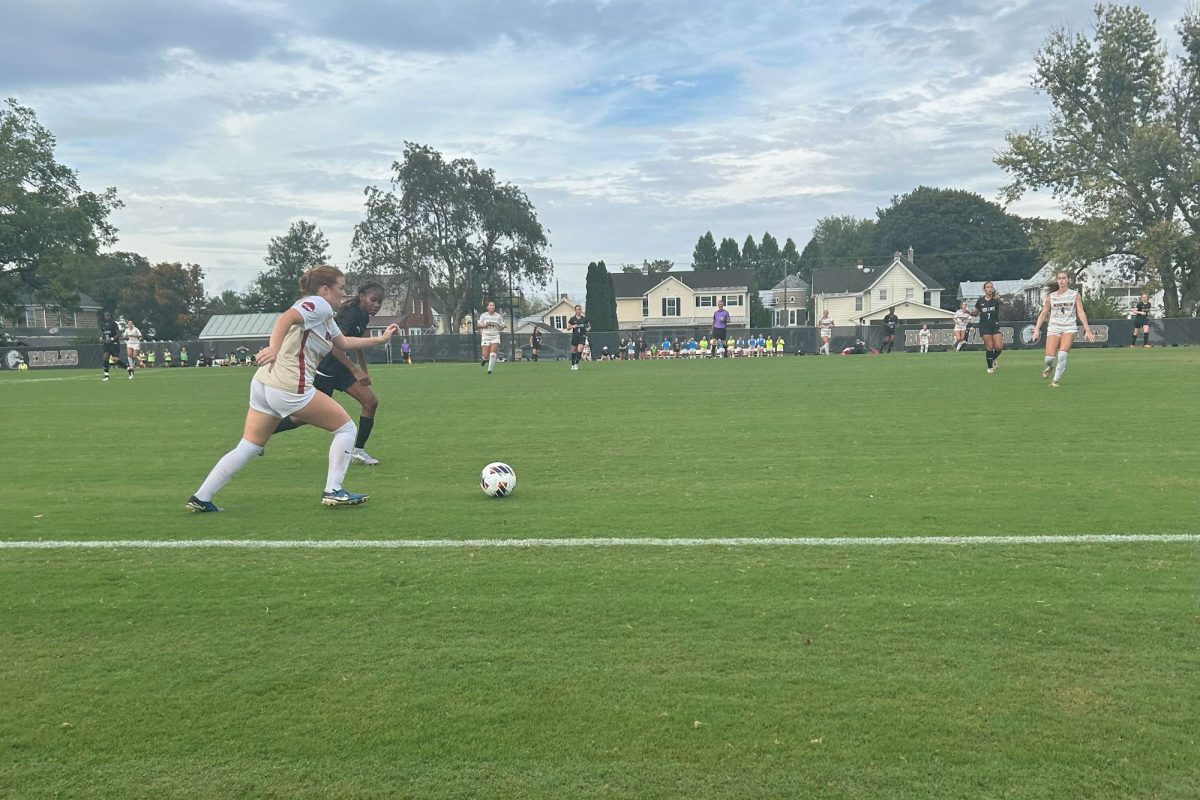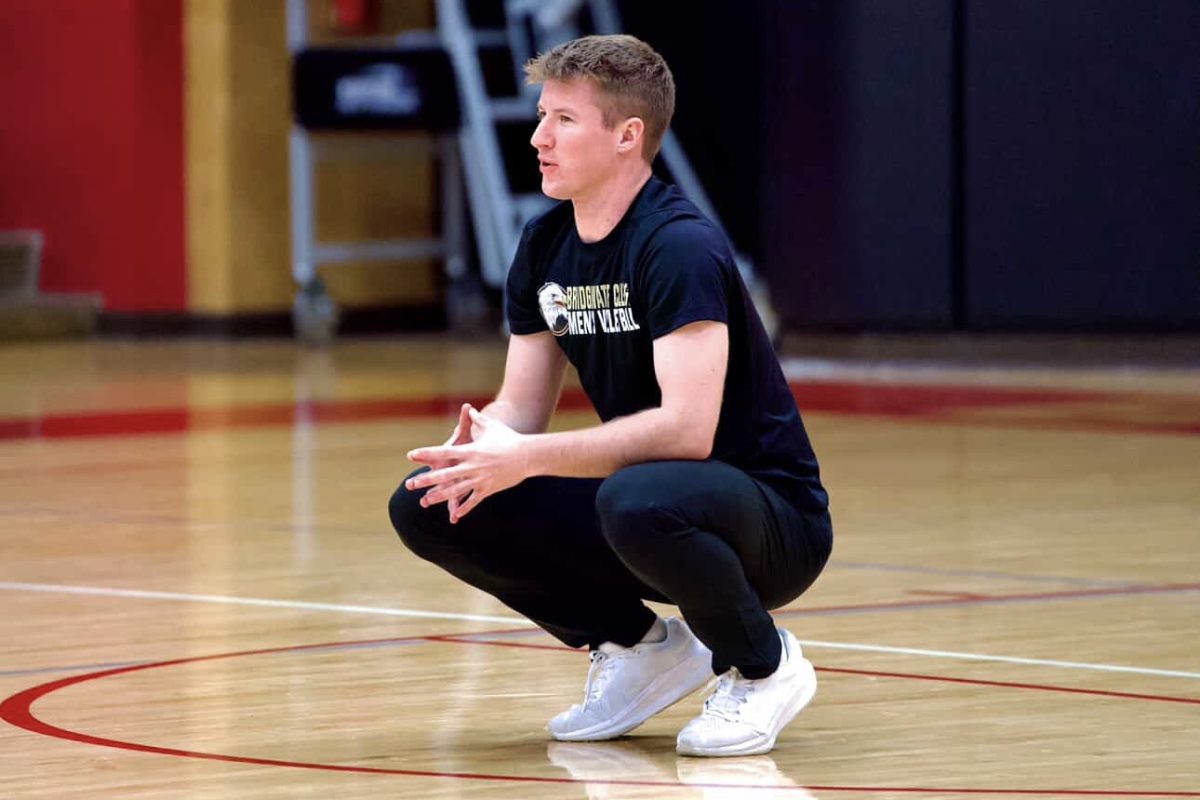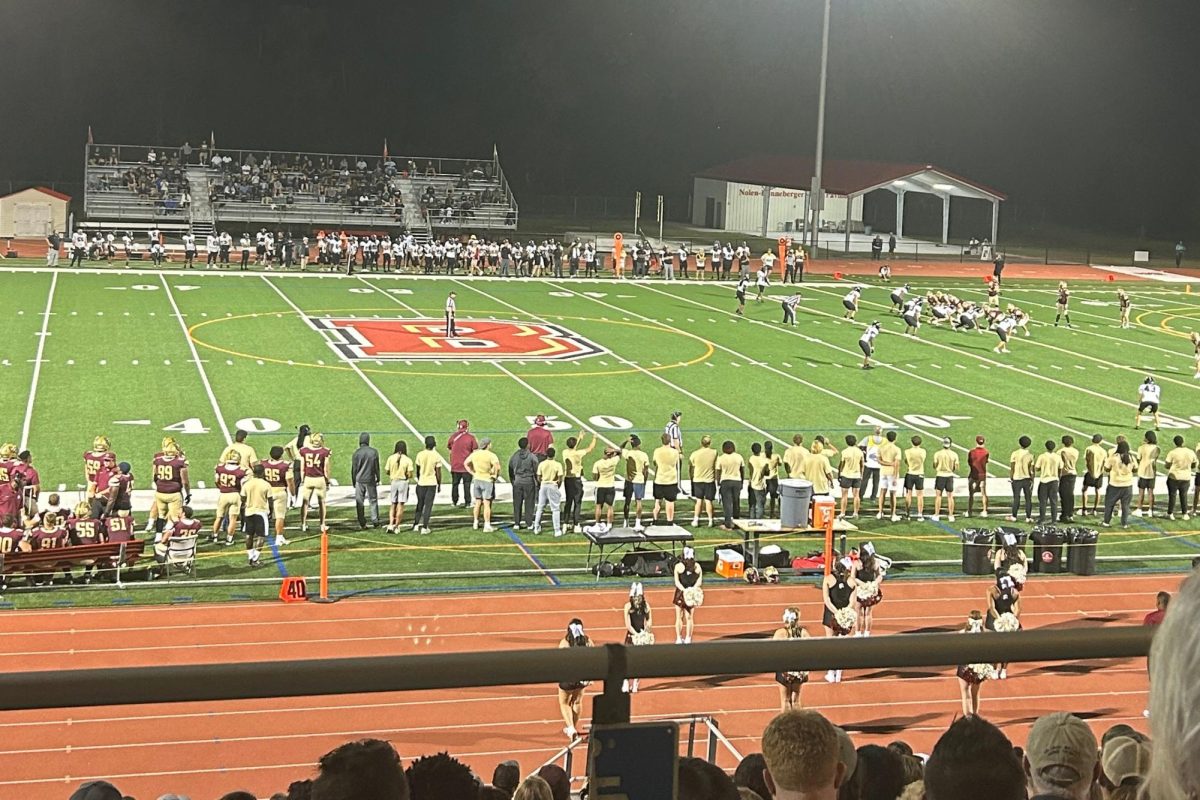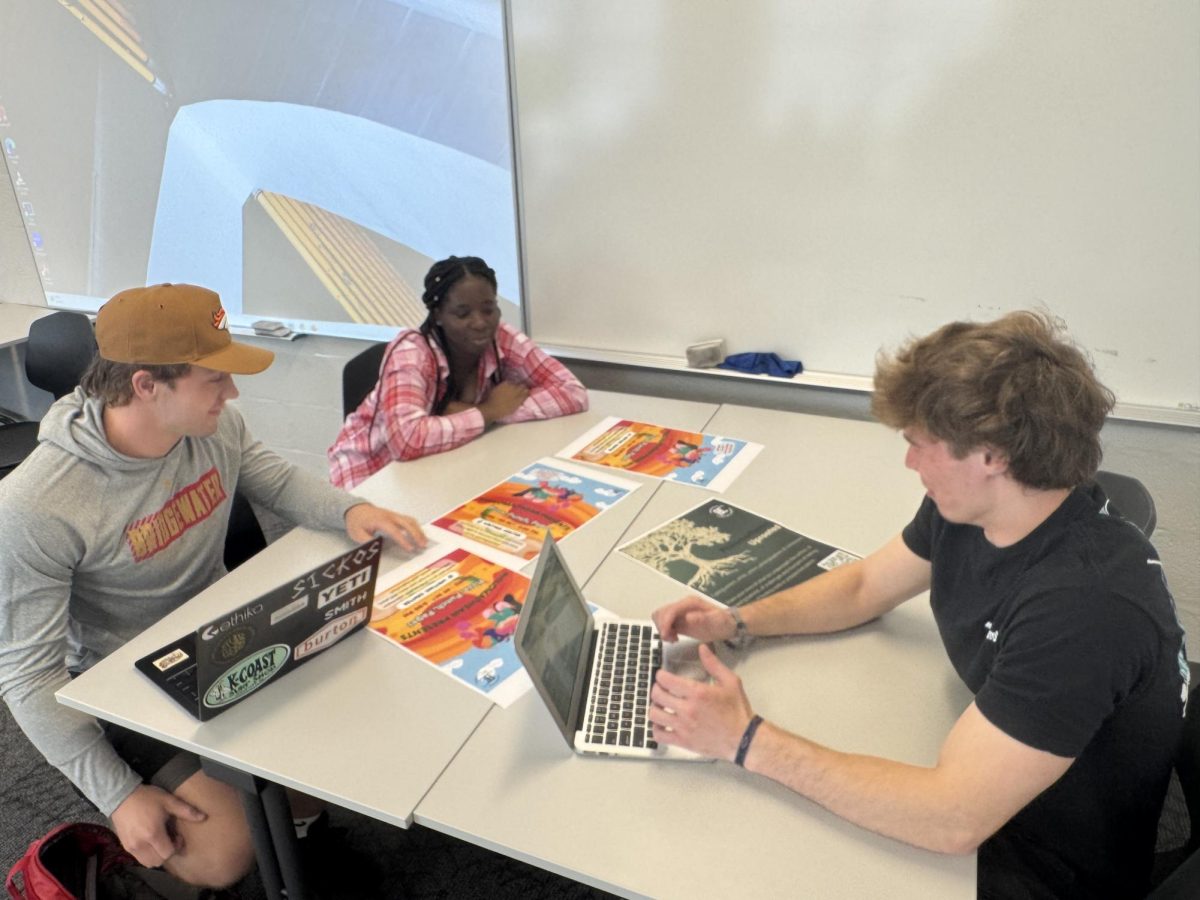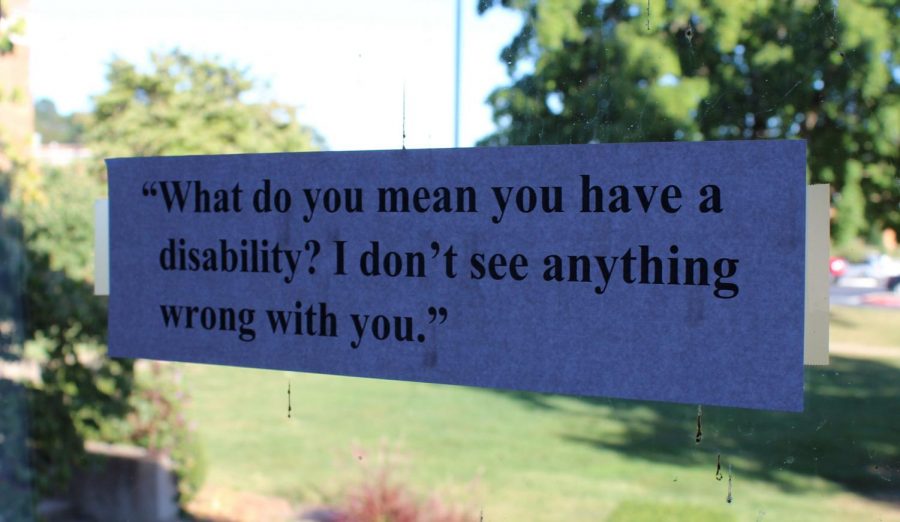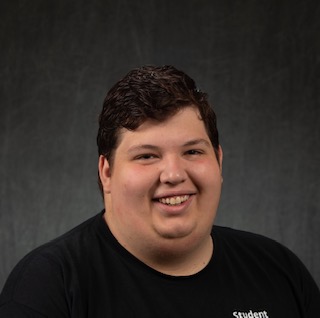“Why is everyone so sensitive?”
The Reality of Microaggressions
“What do you mean you have a disability? I don’t see anything wrong with you.” This is one of many microaggressions which students were asked to analyze.
September 30, 2019
Bridgewater Va.- Students, faculty, and staff gathered to discuss the difficult topic of microaggressions and how these impact their lives and those of the people around them.
This community conversation titled “Why is everyone so sensitive? The Reality of Microaggressions” is one in a series that is being sponsored by the Center for Diversity, Education, and Advocacy.
Community Conversations occur the fourth Wednesday of every month in the Center for Diversity, Education, and Advocacy. Students also refer to this building as the CDEA. The CDEA is located directly across from the Funkhouser Center.
The purpose of these conversations is to provide a safe place where students feel comfortable talking about issues that can be seen as sensitive or controversial subjects. In addition, these conversations foster collaboration among people from a variety of backgrounds.
Each conversation is hosted by a guest faculty and/or staff member. The hosts of this particular discussion were Dr. Bobbi Gentry, professor of political science and Dr. Gavin Lawson, professor of biology.
The main purpose of this dialogue was to do the following: validate those who have experienced microaggressions and to educate those who do not know what microaggressions are or may not have experienced any before.
A microaggression, as stated by Dr. Lawson is “a brief but offensive comment or action that conveys a comment about another group of people.” Dr. Lawson also gave the example of“you are pretty for a ______ .”
During this conversation there was a certain set of rules to insure students could voice their opinions in a safe space. Some of these rules include keeping things confidential, avoid the temptation to persuade, speak for yourself, and to respect each other’s boundaries.
Along the windows of the Kline Campus Center Lobby were examples of microaggressions. To begin the conversation, students were given sticky notes and asked to place one next to each microaggression which they relate to.
The group then came back together to analyze the sticky notes and where they were placed. One realization students came to was that there were more sticky notes than people. This helped attendees visualize just how relevant and common microaggressions are in society.
Attendees were then split into smaller groups and asked to analyze these examples further, thinking about the impact and the responses which people often give.
Once students completed their reviews of this topic the group came back together to discuss what they learned, what they will take away and why these conversations are important.
Microaggressions, as stated by Dr. Gentry are “little cuts, small, but when persistent you really are injured, because at the end of the day you have been marginalized.”
Dr. Robert Bryant, the associate dean of diversity and inclusion, said, “We need to be thoughtful about things before we say them, and hopefully think intentionally about what we say.”
The next conversation in this series will be held on the last Wednesday in October, and will be discussing equality in the Criminal Justice System.

